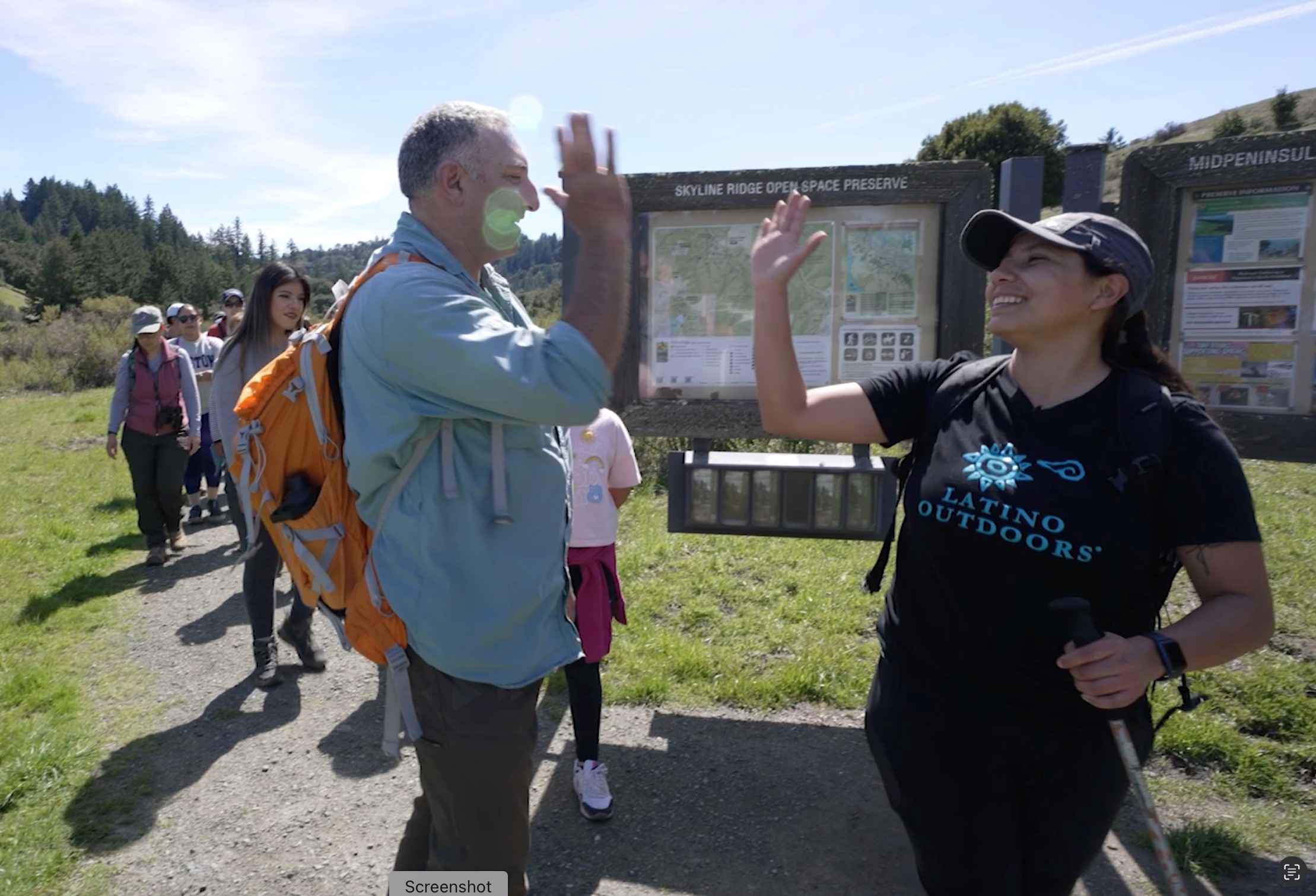| By Bernice Yeung and Grace Rubenstein |
| Center for Investigative Reporting |
| Publish date: Sept. 4, 2013 |
The summer heat had not yet hit its suffocating peak in the Central Valley’s tomato fields when Olivia Tamayo’s supervisor approached her during the midmorning break.
He needed her to work in another area of the 15,000-acre farm, he said. In the company truck, he drove so fast along the dirt road that it jostled Tamayo around in the cab. As he sped into an unfamiliar stand of almond trees, she asked him where he was going. He stopped deep in the orchard labyrinth.
“You’re going to be mine,” she remembers him saying. The crew boss showed Tamayo that he was carrying a handgun. He placed it on the dashboard. Then he raped her, she said.
Despite Tamayo’s accusation that the supervisor, Rene Rodriguez, would rape her twice more, no criminal charges were filed. And Rodriguez repeatedly denied the claims.
But in what would become a landmark case, the federal government filed a civil sexual harassment lawsuit against Tamayo’s employer, Harris Farms, one of the country’s largest agribusinesses and owner of a popular restaurant along Interstate 5. In 2004, Tamayo’s case was the first federal sexual harassment lawsuit against a grower to reach a trial.
A jury found that the company failed to curb the sexual abuse and then retaliated against Tamayo for complaining. It awarded Tamayo nearly $800,000.
Since then, there have been few signs that conditions have gotten better for farmworkers in California – or elsewhere across the country.
Local
Women working in the country's fields and food processing plants continue to face persistent peril of sexual violence and harassment, an investigation by The Center for Investigative Reporting and the Investigative Reporting Program at the UC Berkeley Graduate School of Journalism has revealed.
In partnership with FRONTLINE and television network Univision, reporters spent nearly a year reviewing thousands of pages of documents and crisscrossing the nation to hear workers’ stories of sexual assault. The reporting was the subject of a documentary that aired this summer.
Although the exact scope of sexual violence and harassment against agricultural workers is impossible to pinpoint, reports by agricultural workers span the nation and, particularly, California, home to the nation's most productive agricultural regions and largest population of farmworkers.
In May, the California Agricultural Labor Relations Board, which enforces state labor laws for farmworkers, filed its first case related to sexual harassment, deciding to make the issue a priority because it wasn’t being adequately addressed. In that case, a woman harvesting sweet potatoes in Stanislaus County filed claims that she was fired after accusing a supervisor of sexually assaulting her.
Most women don't come forward like Tamayo did. Many low-wage migrant laborers remain silent about workplace sexual abuse out of shame, fear of deportation or worries they'll be fired. They face intimidating language barriers and an ignorance of workplace laws.
When Tamayo won her case, her lawyer, William J. Smith, thought it would change the landscape for agricultural workers. Today, he’s not so sure.
“Even though Olivia Tamayo stood up for her rights, people are still afraid,” he said. “I don’t think it caught on the way we thought it would because the fear is still out there.”
CIR and IRP conducted the first systematic analysis of the 41 lawsuits filed by the U.S. Equal Opportunity Commission against agricultural businesses in the last 15 years.
In virtually all of the lawsuits, the alleged perpetrators held positions of power in the company; in more than half of the lawsuits, the superiors were accused of targeting multiple victims. In cases in which sexual assault and rape are alleged, these supervisors remained on the job for years without fear of arrest, and law enforcement has done almost nothing to prosecute potential crimes.
More than 4 out of 5 workers who reported the problem to their employers say they were demoted, fired or subjected to further abuse, the analysis shows.
The lawsuits emerged from 1,106 sexual harassment complaints filed by agricultural workers with the Equal Employment Opportunity Commission since 1998. The majority of the complaints are dismissed by the federal commission or settle out of court, and the details remain secret.
“Sexual violence doesn’t happen unless there’s an imbalance of power,” said William R. Tamayo, the San Francisco regional attorney for the U.S. Equal Employment Opportunity Commission. He is not related to Olivia Tamayo. “And in the agricultural industry, the imbalance of power between perpetrator, company and the worker is probably the greatest.”
The justice system for victims is an imperfect one.
The Equal Employment Opportunity Commission, which is charged with enforcing workplace civil rights laws, is the only government entity actively pursuing these cases. But it cannot bring criminal charges. It can file only civil lawsuits against the employers – not the perpetrators – for failing to stop on-the-job sexual harassment.
CIR and IRP could not find a single case filed with the commission that had been criminally prosecuted.
In some cases, local prosecutors are reluctant to file criminal charges. Sheriffs and police officials said these cases can be difficult to pursue because there often is scant evidence and few witnesses.
Prosecutors didn't take up Olivia Tamayo's case. And years after the jury verdict, her former employer, Harris Farms, has continued to deny any wrongdoing. The workers had a consensual relationship that the company did not know about, CEO John Harris said in a statement. Although the jury believed the accused employee was a supervisor, “we felt he was not,” Harris said.
Olivia Tamayo declined to talk about her case for this story because she says the memory of the abuse is like a wound that’s still sore to the touch.
Poised and soft-spoken, she lives in a spotless, rust-colored house in a modern subdivision about 30 miles from her former employer. Her five children are grown – she no longer rises at 4:30 a.m. to make tortillas for their lunch – and she spends her days tending to her ailing husband.
For his part, Rodriguez retired from Harris Farms in 1999. During an interview at his home in South Texas, Rodriguez insisted that he and Olivia Tamayo had dated. She accused him of rape, he said, because she wanted money.
“No, no, no, no,” he said when asked if he’d used violence against her. “If that was how it was from the beginning, I would have been jailed or something.”
As the home of the first major legal efforts, California is the epicenter of farmworker sexual harassment and assault cases.
The attention and success of the initial wave of cases from California “was a factor in paving the way for more farmworker sexual harassment cases to be filed throughout the rest of the country,” said Mike Meuter, director of litigation, advocacy and training for California Rural Legal Assistance.
The California Agricultural Labor Relations Board had never filed a complaint related to sexual harassment until May.
Under the guidance of general counsel Sylvia Torres-Guillén, the board has begun to make it a priority.
In the May case, Elvia Hernandez, who harvested sweet potatoes for Sandhu Brothers Poultry & Farming in Stanislaus County, said a supervisor sexually harassed her by masturbating repeatedly in front of her, offering to pay her for sex and forcibly kissing her. Hernandez claims that after she reported the harassment, she was fired.
An attorney for the company, a small family farm, said he believes sexual harassment is “not an area where the ALRB (Agricultural Labor Relations Board) should be involved with.” The attorney, Jakrun Sodhi, also called the allegations “specious.”
The case will be heard by an administrative law judge in November.
“This is something that has been going on in the fields but that has not been sufficiently addressed,” Torres-Guillén said.
This story was edited by Andrew Donohue and Robert Salladay. It was copy edited by Nikki Frick and Christine Lee.
The independent, nonprofit Center for Investigative Reporting is the country’s largest investigative reporting team. For more, visit www.cironline.org. The reporters can be reached at byeung@cironline.org and grace@gracerubenstein.com.



